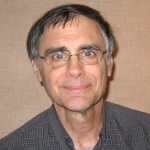 (HOST) A recent injury inspired commentator Castle Freeman to find new, positive meaning in the old saying that misery loves company.
(HOST) A recent injury inspired commentator Castle Freeman to find new, positive meaning in the old saying that misery loves company.
(FREEMAN) Six months ago, if you had asked me what a rotator cuff was, I would have guessed something on a helicopter. A complex part, I would have surmised, neither well understood nor much appreciated, but whose failure is invariably attended by degrees of misfortune, calamity, and pain.
I would have been half right. Wrong about the helicopter. In fact, as I have since learned to my cost, the rotator cuff is, so to speak, closer to home. It’s the system of muscles, tendons, and attachments that holds your shoulder joint in place and allows it to work freely. Four principal muscles, anchored on your shoulder blade, converge at your shoulder, forming the cuff. When they are working normally, you’re able to reach, lift, bend, strike, and perform all the other hundreds of scarcely noticed movements that an hour of waking life entails.
When they are not working normally, however, you have a problem. That’s the half of the rotator cuff’s story that I got right.
Sometime last fall, after a long day splitting my winter’s firewood, I found I had come down with a sore right shoulder. I thought nothing of it. I’d pop an aspirin and give it a couple of days. I’d be fine.
I wasn’t. Rather, things got worse. Eventually I called in the medics. There ensued some weeks of doctor visits, shots, physical therapy, home exercises, MRIs, and X-rays. The climax was surgery to repair a torn tendon, followed by more therapy, more doctor visits, and more exercises, of all which the end is not yet.
On the whole, having a shot rotator cuff is one of those experiences that, were they not so much fun, I might have decided to pass over. It hasn’t been all bad, however. It has educated me in anatomy and physiology. And it has led me to reflect on our common human condition.
For a few weeks after my shoulder surgery, I was obliged to go about with my right arm in a sling. During that time, not a day went by when I didn’t run into somebody who’d had the same trouble as I. Coworkers and other acquaintances, people in stores, at the Post Office, deliverymen, repairmen – suddenly, the world was full of messed-up rotator cuffs. Each encounter with a fellow sufferer, moreover, became the occasion for comparing notes on our situations. How did you hurt yourself? How did the surgery go? How about the rehab? We indulged in a certain amount of rueful humor. We wished one another well.
My busted rotator cuff, then, has given me a new and affectionate connection to my fellows. That’s a lucky thing for anybody to have. Nobody enjoys the inevitable faults and failings of his physical being. But consider: If our aging bodies didn’t occasionally seize up, if they were trouble-free, what would we find to talk about? We are up against our mortality here, and we might as well have what fun we can with it. Nobody likes being mortal. But, being mortal, you meet such nice people.